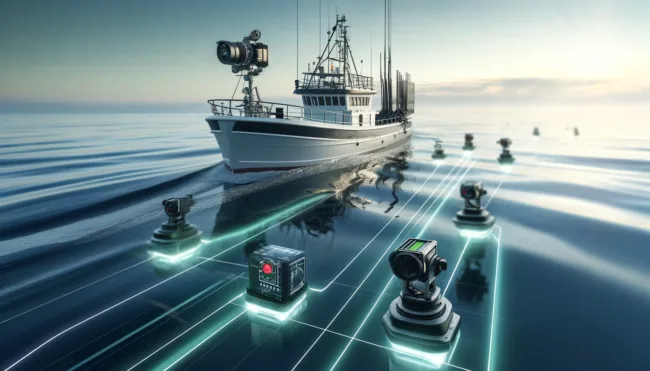UK govt announces advanced monitoring technology to enhance sustainability of fish stocks
In a significant development for the UK fishing industry, the Department for Environment, Food & Rural Affairs, alongside The Rt Hon Sir Mark Spencer MP, has announced the adoption of innovative technology to enhance the management and sustainability of fish stocks in English waters. This announcement, made today, May 13, marks a pivotal shift towards more sustainable fishing practices within the region.
Cutting-Edge Technology for Sustainable Fishing:
The technology, known as Remote Electronic Monitoring (REM), incorporates cameras, gear sensors, and GPS units to meticulously monitor fishing activities. This system ensures that catches are accurately recorded and that no fish are unlawfully discarded back into the sea. By capturing precise data, REM will not only aid in managing fish stocks sustainably but also enhance consumer and retailer confidence in the sustainability of fish sourced from UK waters.
Starting this summer, volunteers from five priority fisheries will begin employing REM systems. Their experiences will help refine the UK’s monitoring objectives and confirm the technology’s efficacy for broader use in the industry.

UK’s cutting-edge Remote Electronic Monitoring technology set to transform fish stock management, ensuring sustainability and boosting industry confidence.
Mandatory Implementation and Long-term Benefits:
Following successful trials and finalization of monitoring objectives, REM systems are set to become mandatory for all vessels operating in these fisheries, including non-UK vessels. This mandatory implementation underscores the UK’s commitment to sustainable fishing practices post-Brexit and aims to support the long-term profitability and resilience of the fishing sector.
Fisheries Minister Mark Spencer highlighted the benefits of leaving the EU, stating, “Leaving the EU has given us the opportunity to take a new approach to fisheries management that is in the best interests of the UK fishing industry. By harnessing this technology, we can sustainably manage our fish stocks, to benefit the industry, future generations, and our marine environment.”
New Approaches to Managing Discards:
In addition to REM, England will adopt a new approach to managing fish discards. Starting in 2025, both landings and discards will be counted against quota allocations, with the amount of quota used to cover discards varying by vessel type and gear used. This change aims to better account for actual catches and encourage the use of improved gears through discard reduction schemes. These schemes will work collaboratively with regulators and the industry to reduce unwanted catch and address barriers to using better equipment.
Fishers can expect to see these new measures and technologies implemented at the start of next year, marking a significant advancement in how the UK manages its fishing resources.
The implementation of REM and new discard management strategies represents a forward-thinking approach to fisheries management in the UK. These technologies and policies not only aim to preserve marine biodiversity but also ensure the sustainability of the fishing industry for future generations. This proactive shift is expected to set a new standard for fishery management globally.
Discover more from Business-News-Today.com
Subscribe to get the latest posts sent to your email.

